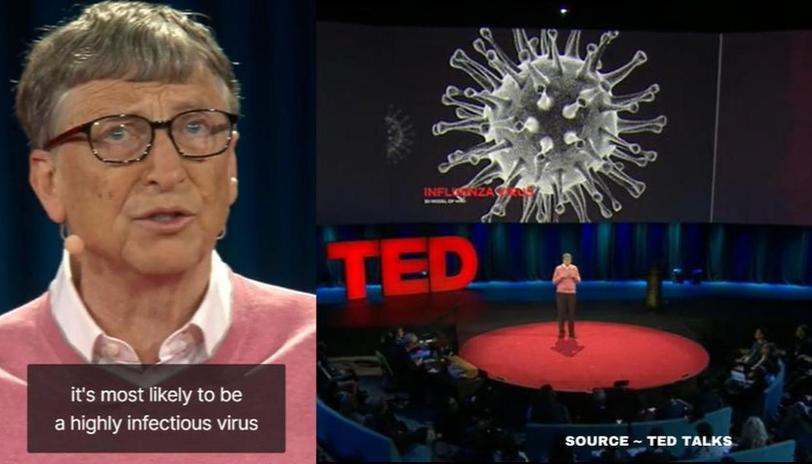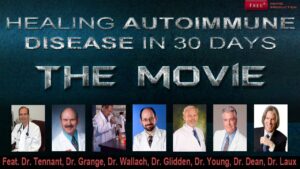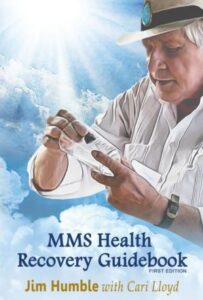Coronaviruses are a group of viruses that cause diseases in mammals and birds. In humans, coronaviruses cause respiratory tract infections that are typically mild, such as the common cold, though rarer forms such as SARS, MERS and COVID-19 can be lethal. Symptoms vary in other species: in chickens, they cause an upper respiratory tract disease, while in cows and pigs they cause diarrhea.
Bill Gates’ Ted Talk In 2015 Predict The Dangers Of Coronavirus Pandemic?
Bill Gates, appears to be Psychic as he predicted the outbreak of an epidemic similar to Coronavirus in 2015, warning the world about its dangers. It all happened when the co-founder of Microsoft Corporation participated in the 2015 Ted Talk to talk about ‘The next outbreak? We’re not ready’. This is where Mr Gates revealed the facts about his fears related to another outbreak of an epidemic in the world.

COVID-19 Pandemic Virus Outbreak Symptoms Vaccine Coronavirus Updates
https://organicbodycleanse.comAn ongoing outbreak of coronavirus disease 2019 (COVID-19), caused by the SARS-CoV-2 virus, started in December 2019. It was first identified in Wuhan, the capital of Hubei, China. As of 26 February 2020, 81,000 cases have been confirmed, including in all provinces of China and forty other countries. Of these, 11,569 cases were classified as serious. There have been 2,764 deaths attributable to the disease, including 49 outside mainland China, surpassing that of the 2003 SARS outbreak. However, more than 30,000 people have since recovered.
Infection is primarily through human-to-human transmission, via respiratory droplets that people exhale (such as cough or sneeze). It has an incubation period of between two and fourteen days. Symptoms include fever, coughing and breathing difficulties.
COVID-19 Pandemic Virus Outbreak Symptoms Vaccine Coronavirus Updates
Symptoms
For confirmed coronavirus disease 2019 (COVID-19) cases, reported illnesses have ranged from mild symptoms to severe illness and death. Symptoms can include:
- Fever
- Cough
- Shortness of breath
CDC believes at this time that symptoms of COVID-19 may appear in as few as 2 days or as long as 14 days after exposure. This is based on what has been seen previously as the incubation period of MERS-CoV viruses.
The latest situation summary updates are available on CDC’s coronavirus disease 2019 (COVID-19) web page.
Complications may include pneumonia and acute respiratory distress syndrome. There are no current approved vaccines nor specific antiviral treatments yet (although there are ongoing research and development of both), with efforts typically aiming at managing symptoms and supportive therapy. Hand washing, maintaining distance from people who are coughing, and avoiding touching one’s face is recommended to prevent the disease. Anyone who is suspected of carrying the virus is advised to monitor their health for two weeks, wear a surgical mask, and seek medical advice by calling a doctor before visiting a clinic.
Diseases caused
Coronaviruses primarily infect the upper respiratory and gastrointestinal tract of mammals and birds. They also cause a range of diseases in farm animals and domesticated pets, some of which can be serious and are a threat to the farming industry. In chickens, the infectious bronchitis virus (IBV), a coronavirus, targets not only the respiratory tract but also the urogenital tract.
The virus can spread to different organs throughout the chicken. Economically significant coronaviruses of farm animals include porcine coronavirus (transmissible gastroenteritis coronavirus, TGE) and bovine coronavirus, which both result in diarrhea in young animals.
Feline coronavirus: two forms, feline enteric coronavirus is a pathogen of minor clinical significance, but spontaneous mutation of this virus can result in feline infectious peritonitis (FIP), a disease associated with high mortality. Similarly, there are two types of coronavirus that infect ferrets: ferret enteric coronavirus causes a gastrointestinal syndrome known as epizootic catarrhal enteritis (ECE), and a more lethal systemic version of the virus (like FIP in cats) known as ferret systemic coronavirus (FSC).
There are two types of canine coronavirus (CCoV), one that causes mild gastrointestinal disease and one that has been found to cause respiratory disease. Mouse hepatitis virus (MHV) is a coronavirus that causes an epidemic murine illness with high mortality, especially among colonies of laboratory mice.
Sialodacryoadenitis virus (SDAV) is highly infectious coronavirus of laboratory rats, which can be transmitted between individuals by direct contact and indirectly by aerosol. Acute infections have high morbidity and tropism for the salivary, lachrymal and harderian glands.
Face Masks Might Actually Increase Infection
Here’s why the vast majority of people should NOT be wearing face masks to combat the coronavirus.
No evidence to suggest masks effectively prevent infection
Though the vast majority of cases of COVID-19 — the infection caused by the Wuhan coronavirus — are reported in China, the WHO has officially called the coronavirus a global health emergency. Recent surges in infections in Italy, South Korea, and Iran, have led world organizations to say the risk is high — though containment might still be possible.
As infection specialist Eli Perencevich, MD, a professor of medicine and epidemiology at the University of Iowa’s College of Medicine, told Forbes, the vast majority of people should not wear a face mask, even if there are cases of the coronavirus in their communities.
Why’s that? In short, there is no actual scientific evidence to support the belief that face masks of any kind — including surgical masks and respirators such as the “N95 mask” — are effective at preventing infection of the coronavirus within a community.
Scientists Confirm Coronavirus Man-Made… Contains ‘pSHUTTLE-SN’ Sequence Proving Laboratory Origin:
https://www.ccn.com/could-the-deadly-coronavirus-actually-be-a-man-made-killer-disease/
SXSW’s Cancellation Over Coronavirus Not Covered by Insurance
After South by Southwest was cancelled on Friday over concerns about the coronavirus, two of its founders told the Austin Chronicle that the film festival doesn’t have insurance to cover the cancellation.
Nick Barbaro, a co-founder of SXSW who is also the publisher of the Chronicle, told the paper that the festival does not have cancellation insurance relating to a disease outbreak or a policy that would be triggered by the city declaring a local state of disaster.
“We have a lot of insurance (terrorism, injury, property destruction, weather). However, bacterial infections, communicable diseases, viruses and pandemics are not covered,” SXSW co-founder and managing director Roland Swenson told the Chronicle.
Insurers routinely exclude communicable disease outbreaks from the cancellation policies that are offered to promoters and artists, but the disease coverage is available for an extra cost as a buy-back — something that most bands have not bothered with, but which many major promoters do take out. Since the outbreak of the coronavirus, insurers have stopped offering the disease coverage as a buy-back option.
The film, music and tech festival was scheduled to take place from March 13-22, but Austin mayor Steve Adler and Travis County judge Sarah Eckhardt held a press conference Friday to announce it would be canceled.
“It’s really unfortunate to be canceling South by Southwest. It’s tied to who we are in this city, and I look forward to the next iteration of South by Southwest when it comes,” said Adler.
Festival organizers said in a statement posted on Twitter: “We are exploring options to reschedule the event and are working to provide a virtual SXSW online experience as soon as possible for 2020 participants, starting with SXSW EDU. For our registrants, clients, and participants we will be in touch as soon as possible and will publish an FAQ. We understand the gravity of the situation for all the creatives who utilize SXSW to accelerate their careers; for the global businesses; and for Austin and the hundreds of small businesses – venues, theatres, vendors, production companies, service industry staff, and other partners that rely so heavily on the increased business that SXSW attracts.”






